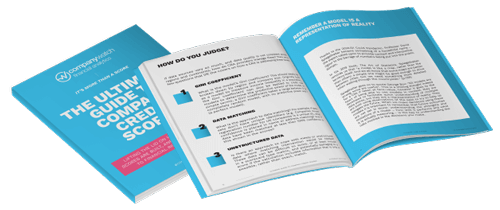Using Company Credit Reports to Improve Payment Terms

For businesses looking to hand out loans or build partnerships, understanding the critical role of company credit reports is paramount to mitigating financial risks.
For lenders, these checks help in evaluating the risk associated with lending money to a company. Investors can use company credit reports to gauge the financial health of potential investment opportunities. Similarly, suppliers can make informed decisions about offering credit terms based on a company's creditworthiness.
Whether you're a financial institution assessing loan applicants, an investor exploring potential opportunities, or a business seeking strategic partnerships, understanding company credit reports is essential. This practice will help you make informed decisions that protect your financial interests and foster mutually beneficial relationships.
In this blog post, we discuss how you can use company credit reports to improve your payment terms. Currently, on average, 17% of payments are late across all sectors, with variations by industry. Stringent payment terms can help you avoid this risk.
In this blogpost, we discuss the following:
- Understanding business credit scores
- Using company credit reports to set payment terms
- Automating credit checks and risk assessment
Understanding business credit scores
A business credit score is a numerical representation of a company's financial health and creditworthiness. It is a score that applies specifically to businesses. A business credit report can include details such as the number of employees, historical business data, past payment history, account information, and amounts owed.

Essentially, a business credit score measures the risk of lending to a company. It is generated by all credit reference agencies. Banks, creditors, suppliers, and customers then use it to make informed decisions about trading or lending to a business.
Several factors influence a business credit score - the type of accounts filed, payment performance, and any County Court Judgments (CCJs) or insolvency proceedings against a business.
The score demonstrates how financially sound and reliable a business is. More importantly, it determines the likelihood of making timely payments. It plays a crucial role in determining:
- Availability of business loans
- Credit card rates
- Payment terms
- Cost of borrowing
Using company credit reports to set payment terms
Using a company credit report is central to setting payment terms that protect your business from financial risks.
A company’s credit report provides insights into its payment history, financial stability, and creditworthiness. This enables businesses to tailor payment terms effectively.
For example, if a company has a strong credit score, you might offer flexible terms like 60-day payments. Conversely, if the credit check reveals late payments or unresolved debts, stricter terms such as upfront payments or shorter deadlines can minimise risks.
Statistics show that nearly half (48%) of UK suppliers are owed over £10,000 in outstanding invoices. Despite this, only 58% of suppliers offering flexible payment terms use company credit reports. This highlights a significant gap in financial risk management practices.
Automating credit checks and risk assessment
Company Watch offers cutting-edge tools to streamline and automate company credit checks and risk assessment processes.
Our innovative platform leverages advanced machine learning techniques to provide comprehensive insights beyond traditional business credit scores.
At Company Watch, company credit reports utilise innovative tools that provide a service unmatched by competitors.
Key features include:
- H-Score®: Scores companies on a scale of 0-100 with a score of 25 or under putting a company in the Warning Area.
- PoD®: Predicts the likelihood of a distress event within one or three years.
- TextScore®: Analyses text in financial reports to predict financial distress.
- Credit Limit: Assesses a company's size, trading activity, and ability to repay.
- Contract Limit: Calculates a recommended maximum value amount.
.png?width=522&height=333&name=unnamed%20(2).png)
Company Watch's Enhanced Due Diligence (EDD) tools conduct thorough financial due diligence, scouring through over 600 billion archived web resources and over 200 million corporate records. This comprehensive approach ensures no stone is left unturned when assessing potential risks.
The platform performs daily checks on all customers and suppliers, sending automated inbox alerts for any changes. These changes can include filings at Companies House or changes to financial health.
By generating company credit reports with Company Watch, businesses can significantly reduce manual effort while gaining deeper, more accurate insights into potential financial risks. These can help define payment terms quickly and accurately.
Key takeaways
- A business credit score is a numerical representation of a company's financial health and creditworthiness.
- Using a company credit report is central to setting payment terms that protect your business from financial risks.
- Company Watch offers cutting-edge tools to streamline and automate the risk assessment process.

